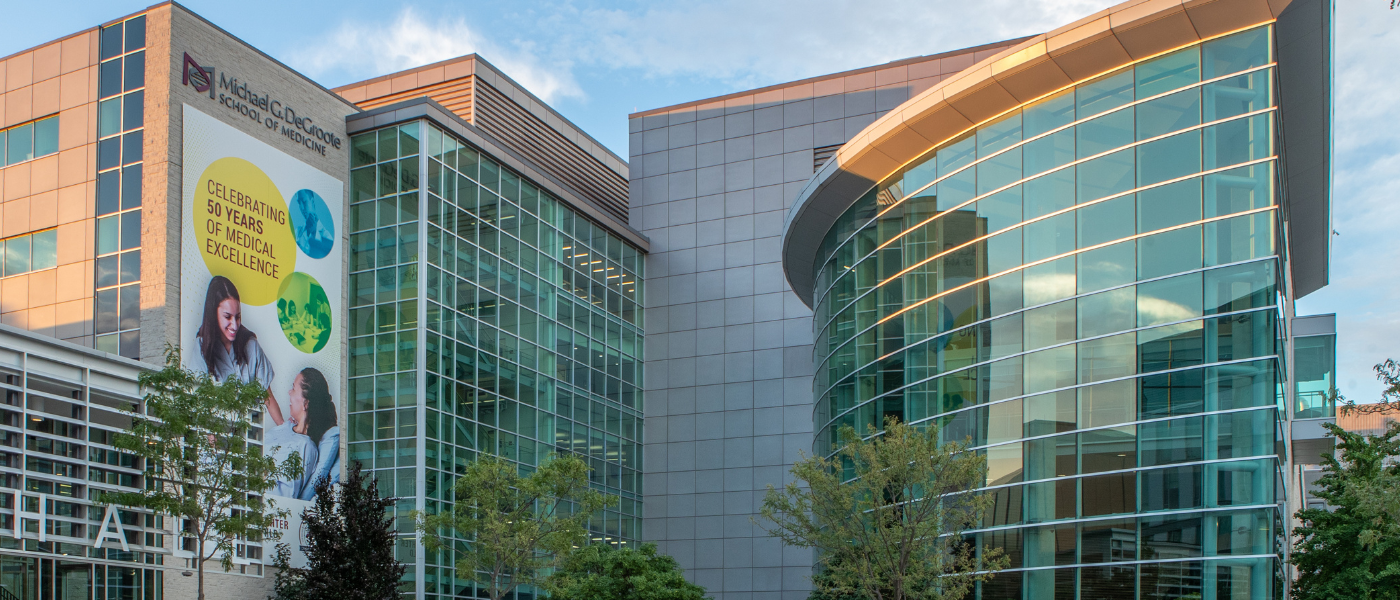Comprehensive information/official policies of McMaster’s DeGroote School of Medicine are available at:
mdprogram.mcmaster.ca
Admission to the DeGroote School of Medicine is not available to secondary school applicants. Students must complete at least three years of post-secondary experience prior to admission to this program.
The program is designed to involve medical students with a broad range of human health problems and with early exposure to patients. There are also opportunities for students to gain education and experience in more remote Northern Canadian areas or in an international setting. The program is three years in length and runs for 11 months of the year. In recent years, enrolment has increased to 203 places with the addition of the Waterloo Regional and the Niagara Regional campuses.
The School of Medicine, established in 1965 and renamed the Michael G. DeGroote School of Medicine in 2004, offers major programs in undergraduate, postgraduate and graduate medical education. The clinical programs use not only the teaching hospitals and ambulatory care and research facilities at the McMaster University Medical Centre division of Hamilton Health Sciences, but also the clinical teaching units at several of the major Hamilton hospitals and community health-care centres.
The Undergraduate Medical Program for the MD degree was initiated in 1969, graduating its first students in May 1972. At present, 203 students are admitted to the program each year.
The COMPASS curriculum aims to ensure that our graduates have a good working understanding of biological, psychological and social mechansims and processes, as well as their impact on health and disease, based on principles of learning drawn from cognitive psychology. Recent evidence from cognitive psychology about how people learn and use concepts suggests specific strategies which are very compatible with the basic approach to problem-based learning. These advances have guided McMaster curriculum planners to develop a curriculum that can ensure that concepts, once mastered, will be available to students when resolving clinical dilemmas. The COMPASS curriculum is structured to allow the integration of critically important fundamental concepts in medicine and affords an opportunity for students to have the time to practice applying these concepts to multiple different clinical problems.
In the COMPASS curriculum, the tutorial group remains the key setting in which students will contribute to each other’s education under the guidance of a tutor. Students take a lot of responsibility for their own learning and acquire different information at different times and thus, time is allowed for independent, self-directed learning. However, there are cogent reasons for delivering lectures that help students synthesize and contextualize the information they have been learning. There is a continuing evaluation process including assessment by tutors, peers and self, as well as program-related evaluation exercises.
For an overview clinical experiences, please visit the DeGroote School of Medicine website.
- Hamilton Health Sciences Training Facilities/Partnership
- Waterloo Regional Campus
- Niagara Regional Campus

